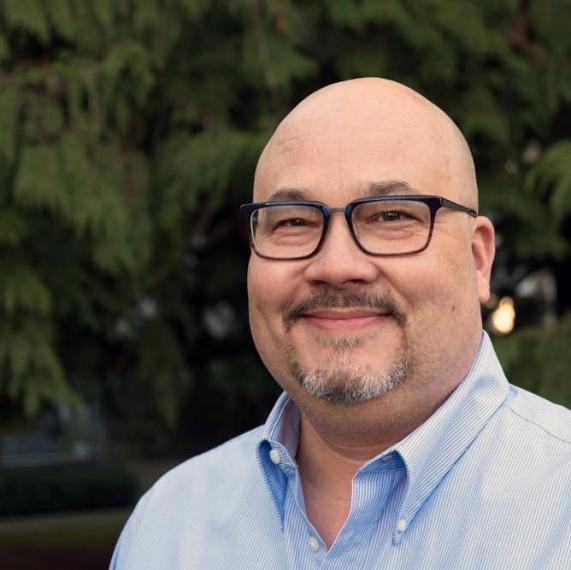MA Leadership alumnus renews passion for helping not-for-profits in his community

Jason Krueger went into the MA Leadership program at the University of Guelph expecting to gain the knowledge and skills to become a better leader, but did not anticipate how much it would transform his perspective and priorities in both work and life.
In this Q&A, Jason discusses his reasons for choosing the MA Leadership program at the University of Guelph, his student experience and how the program helped him advance his career and community involvement.
What was your job after you graduated from the program?
I assumed my current position during the program, about six months prior to graduation. In this position, I oversee a savings and loans portfolio and the investments portfolio of 170 churches in Western Canada.
What was the most important connection you made at the University of Guelph?
After graduating from the 2016 cohort, I recently met half of the 2017 cohort. This growth in networking provides the opportunity to make lasting and important connections even after graduating from the program. I also remain close with members from my cohort, who work in law enforcement, the not-for-profit sector and manufacturing. Not having worked in these industries before, these connections are invaluable.
Why did you choose University of Guelph for your master’s degree?
When I was looking for graduate program, I looked at more than twelve programs, including four in the United States. Personally, cost was not a factor because the most important thing I considered was the academic and professional backgrounds of the teaching staff and the University’s ranking by graduates for the overall quality of their educational experience. The University of Guelph fit the bill.
What course was most impactful to your professional development?
There were two courses that had a tremendous impact on my professional development:
- LEAD*6300: The Role of the Leader in Decision-Making
- LEAD*6800: Self-Assessing Personal Skills
6300 is a course designed to improve decision-making skills and how to consider account complexity, risk and outcomes, and the impact of decisions on people, the community and the organization. 6800 is a course that examines the personal skills required to make smooth transitions from one job to another in a dynamic workplace.
What other skills did the program help you develop?
There are several skills that the program helped me develop, including:
- Cognizance that power and politics is present in every organization
- The worth and practice of self-reflection
- Understanding my emotional intelligence and who I am as a leader
- Leading and following with humility and generosity
- Applying current academic research to emergent situations at work
- Communicating in a clear and concise fashion
- Coaching others to help them find their own change path, rather than managing them towards biased outcomes
What would you tell your graduating self?
Going into the MA Leadership program, I knew that I would gain substantial knowledge and new skills. However, I did not anticipate how drastically it would transform me as a leader and change my daily habits. I continue to engage in active reflection; starting and ending my day with just a few quiet moments of reflection; practice empathy; remain generous with my time; and leading humbly.
I now continuously demonstrate an ethic of care, whether leading or following. I now recognize that there are times you may not realize you are playing both roles. There are certainly times where you will not recognize the impact you have made on someone’s life.
How are you using your degree to improve life in your community or abroad?
After graduating from the program, my priorities have changed in that I want to commit my time to organizations that are doing great things within the community. I have transitioned my employment and board activities to a majority of not-for-profit enterprises. I now volunteer my time and finance expertise to multiple not-for-profit committees and boards, and serve as a coach to my peers in related organizations.
Most importantly, this program has helped me renew and strengthen broken relationships between my organization’s board and that of our ‘parent organization’. We are now driving forward together in order to accomplish our shared missional objectives.